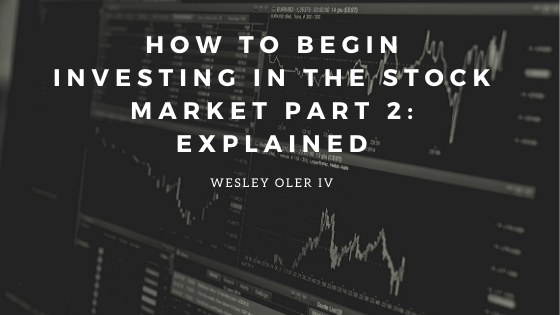If you missed part 1 of how to begin investing in the stock market, click here to refer to the previous article. In part 2 of this series, we will be continuing to discuss how to invest in the stock market.
Stock market crash vs. correction:
Unfortunately, people can often mistake the difference between a stock market crash and a correction. Due to media focusing heavily on the major indicators and their performance, the performance is often exaggerated. To understand the difference, it’s important to understand the definitions of a crash and correction. A stock market crash is often a rash, unexpected drop in stock prices. For example, if stocks plummet 25% in one day, this plummet is considered a crash. A stock market correction occurs when the stock market dips at least over 10% in a single day. The stock market is a volatile place to invest, but the key to surviving a crash or correction is a long-term strategy. The stock market can experience an extremely high or extremely down day. To ensure your investments survive, it’s best to not touch your assets and watch the stock market for any trends. The trends may signal a shift in your investment, either increasing your portfolio or decreasing it.
Spread your portfolio:
One of the most common mistakes when beginning to invest in the stock market is not diversifying your portfolio. It’s important to invest in quality stocks that will increase your portfolio. However, it’s important to spread your investment across different stocks and markets to avoid great financial loss. Sudden setbacks can happen if you invest all of your money into one company or stock. To spread your investments across a wide range of stocks, invest your time into researching options for your investments. If you’re weary of investing in multiple stocks, ETFs are the best alternatives. ETFs already bundle different options into one simple investment, so your investment is covered.
The stock market is not simple. You will not understand it overnight. It takes time, patience, and a lot of research to see the fruits of your investment. Whatever investments you decide to make, good luck and happy investing!
Disclaimer: This article is meant strictly for informational purposes. Not intended as financial or investment advice. Do not misuse or misconstrue the information in this article. Seek advice from your personal financial advisor on matters pertaining to investments/finances.
